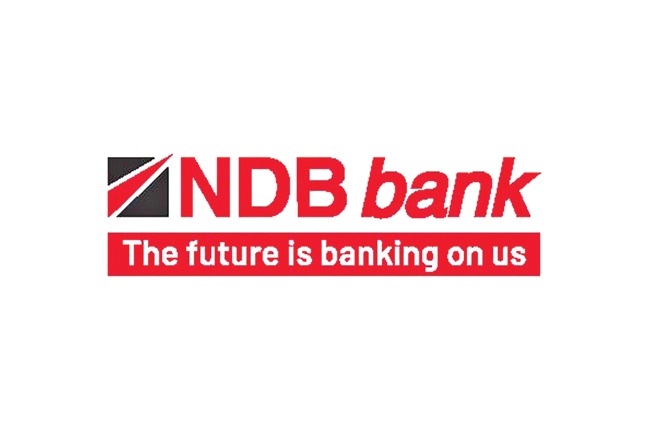Fitch Ratings has reaffirmed the ‘A-(lka)’ National Long-Term Rating for Sri Lanka’s National Development Bank Plc (NDB), maintaining a Stable outlook. This decision reflects recent improvements in the operating environment, as indicated by macroeconomic indicators.
Fitch anticipates that Sri Lanka’s stabilizing economic conditions will support NDB’s ability to grow and maintain business volumes. However, the bank’s profile continues to face challenges due to elevated risks within the domestic operating environment.
The rating agency expects NDB to benefit from a modest rebound in lending, which should increase the proportion of net loans within total assets (57.5% as of end-1Q24), aligning with industry peers.
NDB’s risk profile remains closely linked to sovereign credit and market risks, due to its significant holdings in defaulted foreign-currency sovereign bonds (6.5% of assets as of end-2023) and rupee-denominated government securities (25.6% of assets).
Fitch also affirmed NDB’s Sri Lankan rupee-denominated proposed subordinated debt at ‘BBB(EXP)(lka)’ and outstanding subordinated debt at ‘BBB(lka)’.
Fitch Highlights Key Rating Drivers
Fitch Ratings has reaffirmed the ‘A-(lka)’ National Long-Term Rating for Sri Lanka’s National Development Bank Plc (NDB) with a Stable outlook, attributing the rating to several key factors:
1. Intrinsic Profile Drives Rating: NDB’s rating reflects its financial strength, which is significantly influenced by its exposure to Sri Lanka’s weak sovereign credit profile and ongoing debt restructuring. The rating also acknowledges NDB’s position as Sri Lanka’s sixth-largest commercial bank, despite its modest domestic franchise.
2. Stabilizing Operating Environment (OE): The operating environment for Sri Lankan banks shows signs of improvement, with positive macroeconomic indicators supporting operational flexibility. Continued progress depends on the successful completion of the sovereign’s external debt restructuring and the restoration of creditworthiness.
3. Economic Recovery Boosts Lending: Fitch expects that the stabilizing macroeconomic environment will support NDB’s business volumes, with modest growth in lending anticipated. This is expected to lead to an increase in the proportion of net loans within total assets (57.5% as of end-1Q24).
4. Exposure to Sovereign Risks: NDB’s risk profile remains closely tied to sovereign credit and market risks, with significant holdings in defaulted foreign-currency bonds (6.5% of assets) and rupee-denominated government securities (25.6% of assets). This exposure makes NDB vulnerable to changes in the sovereign’s repayment capacity and liquidity.
5. Asset Quality Concerns: NDB’s impaired (stage 3) loan ratio of nearly 17% at end-1Q24 is among the highest for large Fitch-rated Sri Lankan banks. Fitch expects this ratio to improve with enhanced borrower repayment capacity and loan book expansion.
6. Eased Profitability Risks: Risks to NDB’s profitability have lessened, despite potential incremental credit costs from sovereign bond restructuring. The bank’s core profitability metric – operating profit/risk-weighted assets – decreased to 1.8% in 1Q24 but is expected to improve due to lower credit costs and net interest margin pressures.
7. Sovereign Risk Pressures on Capital: NDB’s regulatory common equity Tier 1 (CET1) capital ratio improved to 12.5% by end-1Q24 but remains among the lowest for large Fitch-rated Sri Lankan banks. Capital buffers are under pressure from sovereign risks and potential capital-impairment from its loan book.
8. Funding and Liquidity Risks Eased: Funding and liquidity stresses are less severe compared to the height of the crisis, thanks to favorable external sector flows and liquidity preservation efforts. However, NDB’s foreign currency funding and liquidity profile remains sensitive to adverse changes in the sovereign’s credit profile.
Fitch Ratings has outlined the factors that could impact the National Development Bank Plc’s (NDB) rating, providing insight into potential rating adjustments.
Rating Sensitivities:
Negative Rating Action/Downgrade:
- Relative Creditworthiness: NDB’s National Rating is sensitive to changes in its creditworthiness compared to other Sri Lankan issuers.
- Deterioration in Metrics: A decline in NDB’s key credit metrics beyond Fitch’s base-case expectations, relative to its peers, could pressure the rating, reflecting its intrinsic financial strength.
Positive Rating Action/Upgrade:
- Sovereign Improvement: An upgrade could be triggered by positive actions on the sovereign rating.
- Enhanced Credit Metrics: Sustained improvements in NDB’s key credit metrics beyond base-case expectations could also lead to an upgrade.
Subordinated Debt Ratings:
- Current Ratings: NDB’s Sri Lankan rupee-denominated subordinated debt is rated two notches below the National Long-Term Rating. This rating reflects Fitch’s standard for loss severity and expectations of poor recoveries.
- No Additional Notching: There is no extra notching for non-performance risks, as these debt instruments do not include going-concern loss-absorption features.
Rating Sensitivities for Subordinated Debt:
- The ratings for subordinated debt will move in alignment with NDB’s National Long-Term Rating.
References for Rating Drivers:
The principal sources of information used in Fitch’s analysis are detailed in the applicable criteria.


